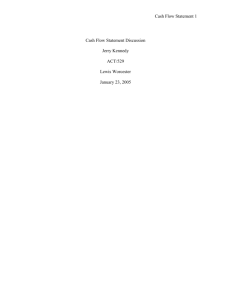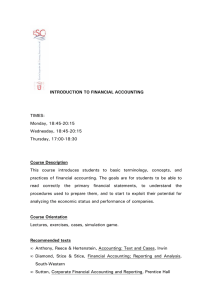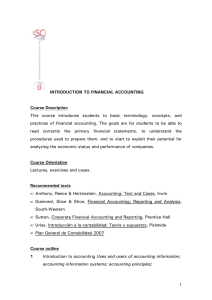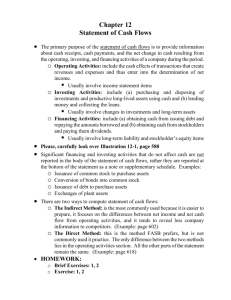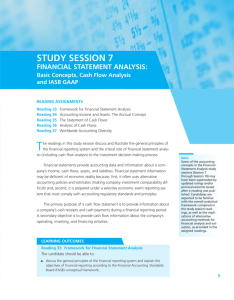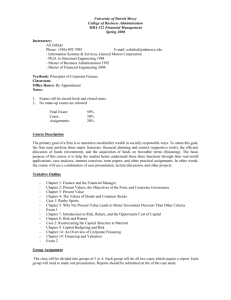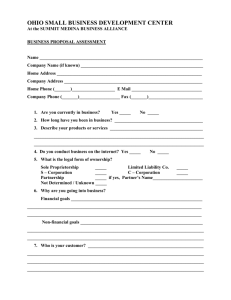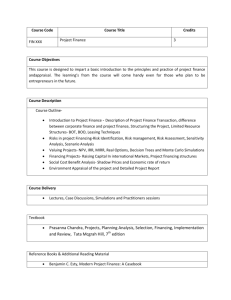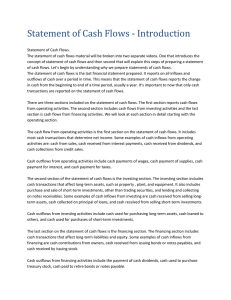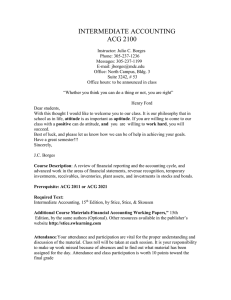FINANCIAL ACCOUNTING I TIMES: Monday, 10:00-11:30
advertisement
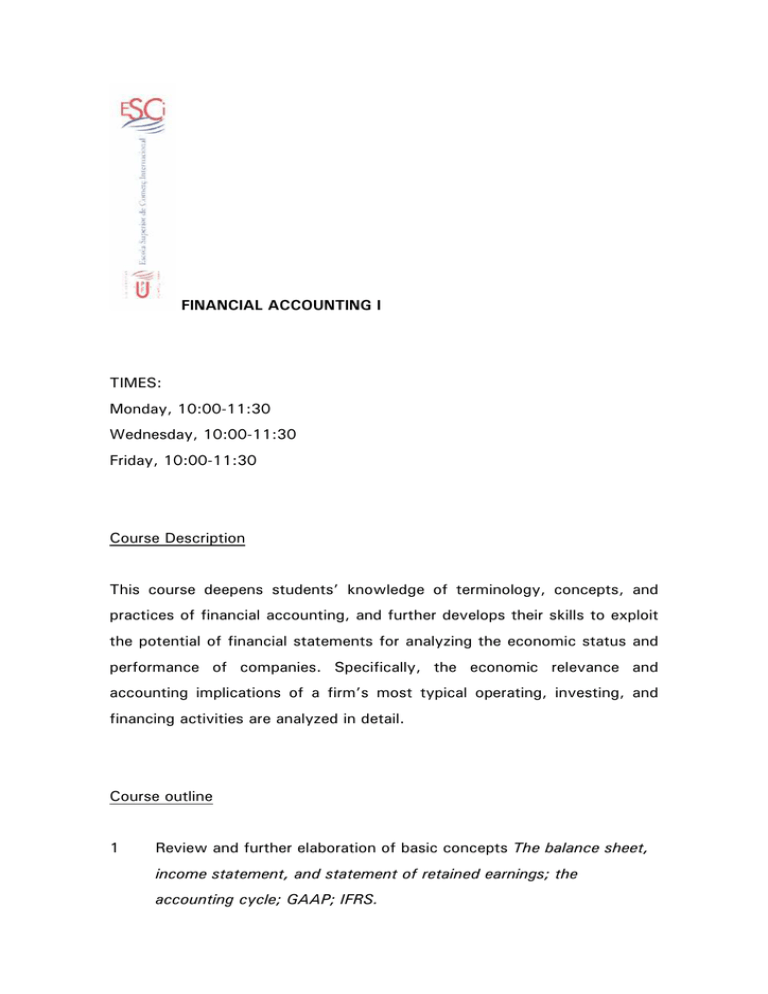
FINANCIAL ACCOUNTING I TIMES: Monday, 10:00-11:30 Wednesday, 10:00-11:30 Friday, 10:00-11:30 Course Description This course deepens students’ knowledge of terminology, concepts, and practices of financial accounting, and further develops their skills to exploit the potential of financial statements for analyzing the economic status and performance of companies. Specifically, the economic relevance and accounting implications of a firm’s most typical operating, investing, and financing activities are analyzed in detail. Course outline 1 Review and further elaboration of basic concepts The balance sheet, income statement, and statement of retained earnings; the accounting cycle; GAAP; IFRS. 2 The Cash Flow Statement Purposes and preparation; cash flows from operating, investing, and financing activities; direct and indirect method. 3 Revenue and monetary assets Revenue recognition; revenue cycle; bad debts. 4 Inventories and cost of sales Inventory systems; inventory valuation methods. 5 Other operating items Employee compensation; income taxes. 6 Investments in operating assets Acquisition; depreciation; disposal; intangible assets. 7 Investments in financial instruments Purposes and categories of financial assets; trading, originated loans and receivables, held-tomaturity and available-for-sale assets. 8 Financing activities Bonds; leasing; other forms of debt; equity financing. 9 International aspects Transactions in foreign currencies; international differences in GAAP; accounting harmonization. Course Orientation Lectures, exercises, cases, group project. Recommended texts • Diamond, Stice & Stice, Financial Accounting; Reporting and Analysis, South-Western, 5th edition, 1999. • Sutton, Corporate Financial Accounting and Reporting, Prentice Hall. 2003 • Anthony, Reece & Hertenstein, Accounting: Text and Cases, Irwin. • Urías, Introducción a la contabilidad; Teoria y supuestos, Pirámide (if you prefer something in Spanish). 2002. FINANCIAL ACCOUNTING I GRADING POLICY The course grades will be determined on the following basis, provided that at least a grade of 4.0 is obtained in the final exam. Otherwise, the course grade will be the grade obtained in the exam. Participation, quizzes and homework: 15% Group project (paper): 20% Final exam: 65% For students retaking the exam in September, the same weighting will be applied. Students who do not take the final exam or do not hand in the term paper will receive 0 points for those grade components.
